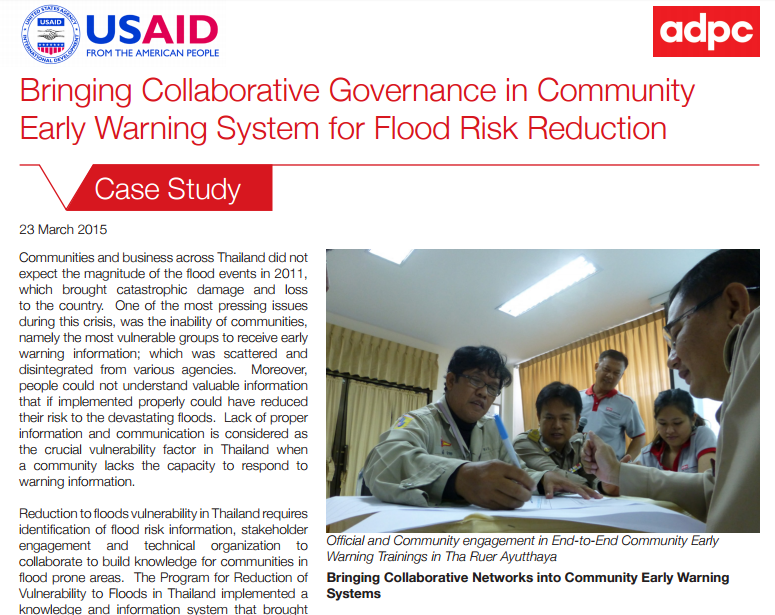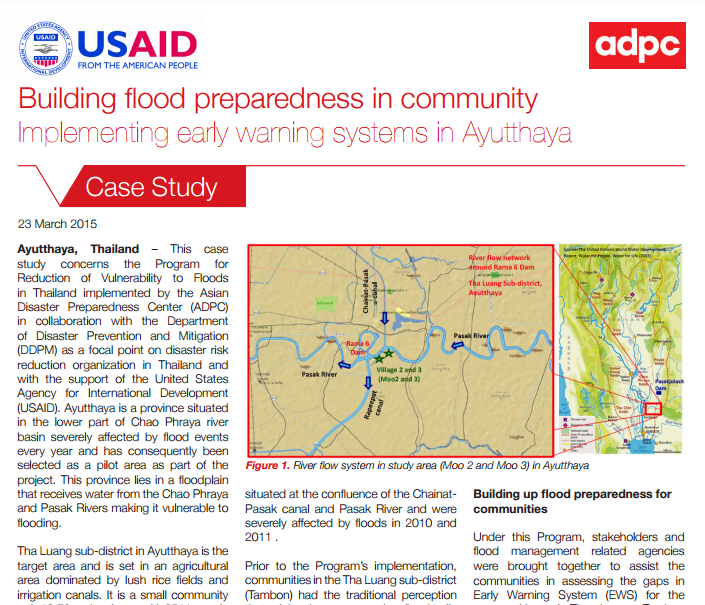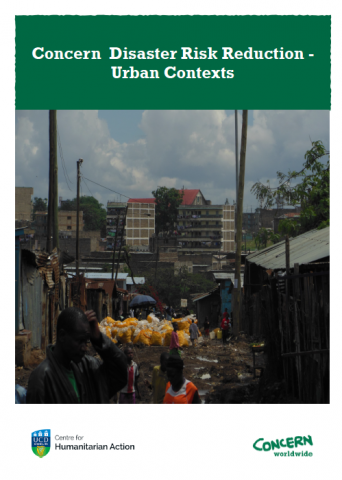Bringing Collaborative Governance in Community Early Warning System for Flood Risk Reduction
Published 23 March 2015 The collaboration of government, local government, and community is key to flood early warning systems. The Program for Reduction of Vulnerability to Floods in Thailand (ADPC and USAID) implemented various activities under the program to strengthen the collaboration which also brings the understanding among stakeholders on flood early warning system. […]



